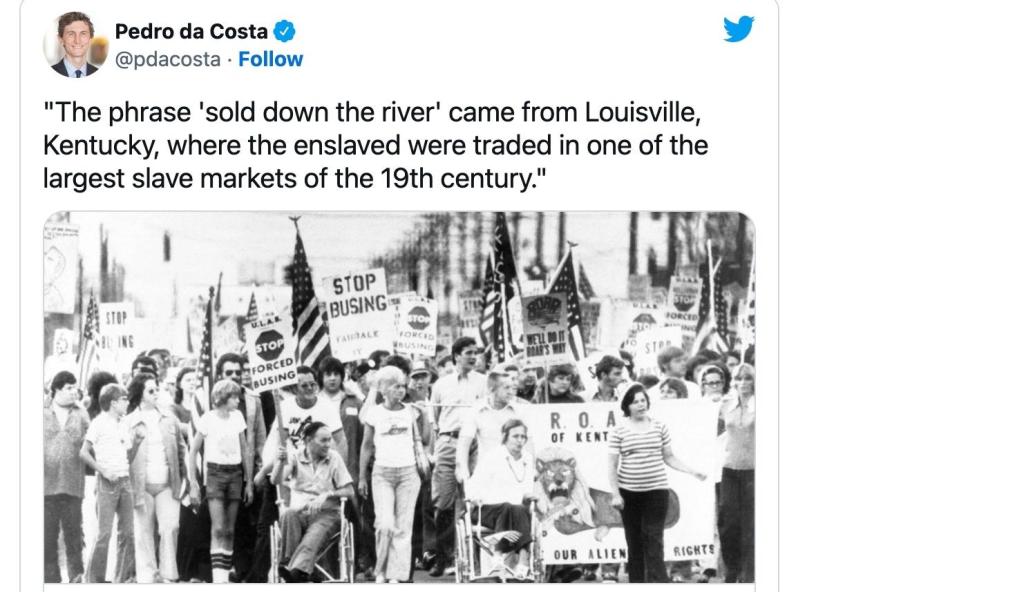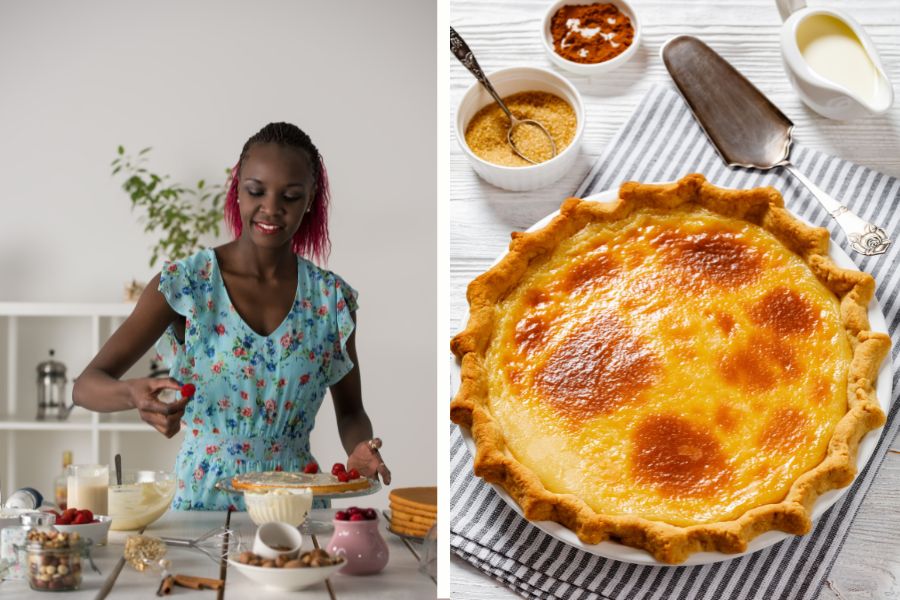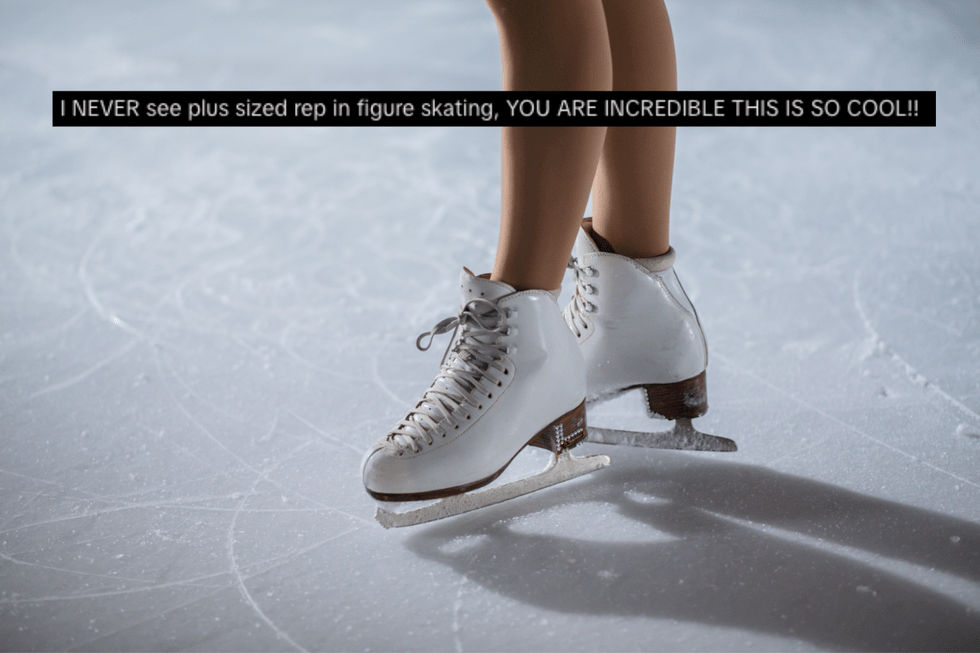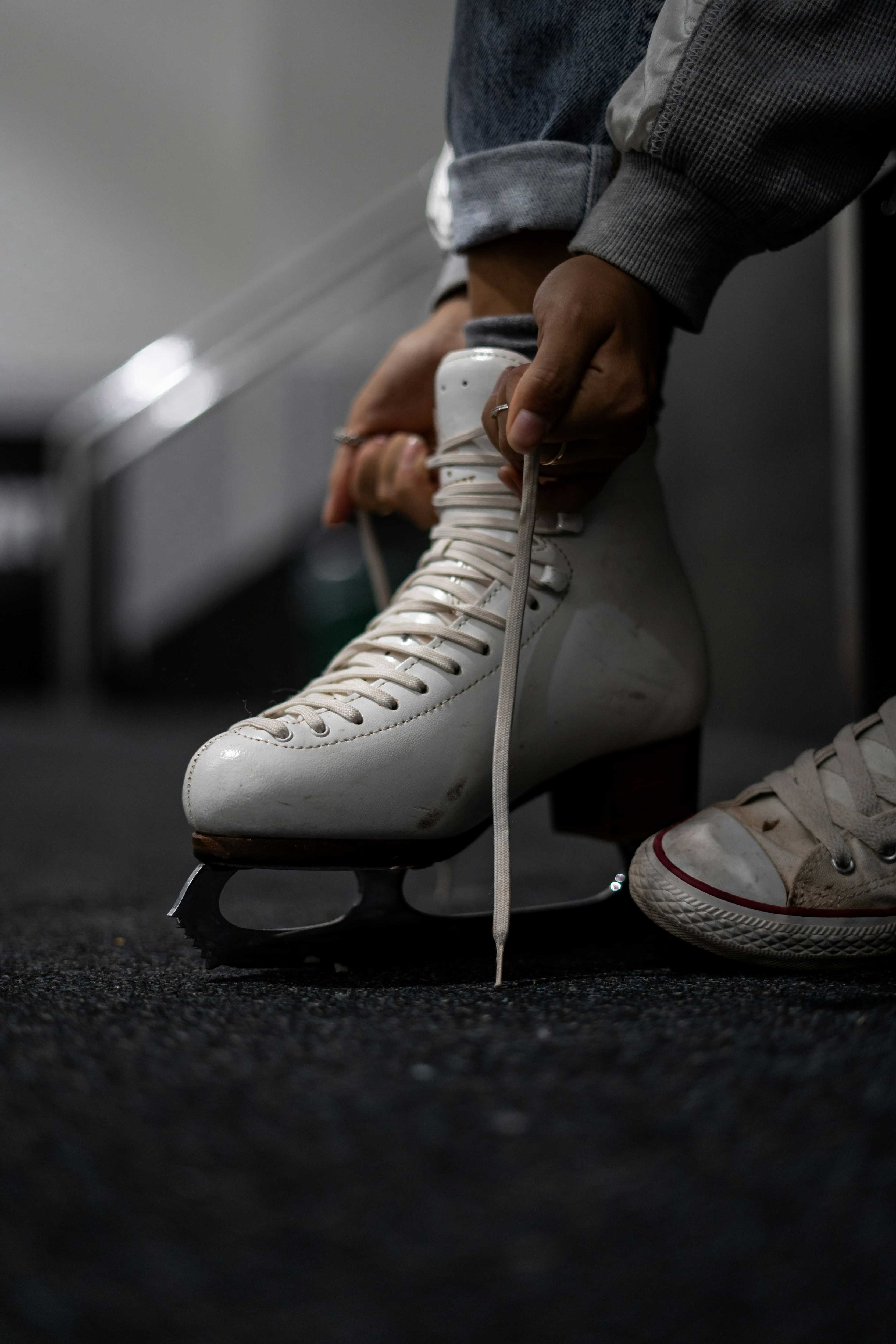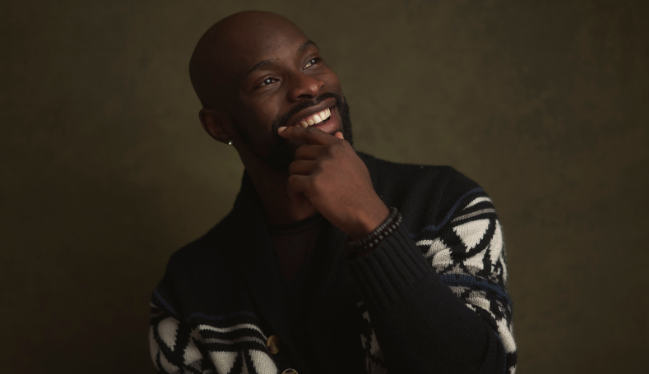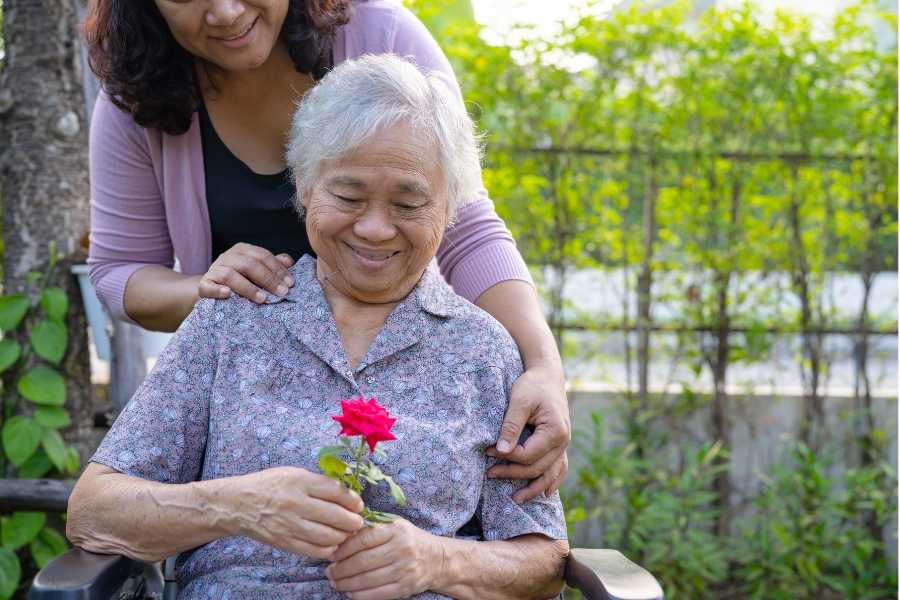As much as we’d like to pretend every phrase we utter is a lone star suspended in the space of our own genius, all language has a history. Unfortunately, given humanity’s aptitude for treating each other like shit, etymology is fraught with reminders of our very racist world.Since I have faith that most of you reading want to navigate the world with intelligence and empathy, I figured it’d be useful to share some of the everyday phrases rooted in racist etymology. Knowledge is power, and the way we use and contextualize our words can make a huge difference in the atmospheres we create. According to Meriam-Webster’s dictionary definition, a thug is “a violent criminal.” Obviously, this definition leaves the word open to define people of all ethnicities. However, given the frequent ways this word has been used to describe Black Lives Matter protesters, the 17-year-old murder victim Trayvon Martin, and sadly, almost every black victim of police brutality — there is an undeniable racial charge to the word. When you consider the people who are called thugs — groups of black protesters, victims of racist violence, teenagers minding their own business, and flip the racial element, you’d be hard-pressed to find examples of white people being called thugs in earnest by the media (or really by anyone).
Several prominent activists and black writers have written about the phenomenon of thug replacing the n-word in modern culture. In a popular press conference back in 2014, the Seattle Seahawks player Richard Sherman explained his feelings about the word. “The reason it bothers me is because it seems like it’s an accepted way of calling somebody the N-word now. It’s like everybody else said the N-word and then they say ‘thug’ and that’s fine. It kind of takes me aback and it’s kind of disappointing because they know,” Sherman said.
When most of us hear the term “grandfather clause” we just think of the generalized description: a person or entity that is allowed to continue operating over now expired rules. But the literal meaning reveals the “grandfather clause” was a racist post-Reconstruction political strategy. This is the historical definition, according to Encyclopedia Britannica: In modern speak, this basically meant the Grandfather Clause let white people off the hook for new voting requirements because their ancestors were already registered voters. Meanwhile, black people were required to fill out impossible literacy tests and pay exorbitant poll taxes to vote. This in turn, meant many black people were unable to vote, while white people weren’t held to the same standard. The word “Gypsy” was (and is) a racial slur referring to the Roma people. The Roma people are descendants of Northern India who, due to severe marginalization and threats of violence by others, lived a nomadic lifestyle of forced migration for centuries. During a fraught history, Roma people were taken as slaves in Romania and were targeted for genocide by the Nazis. In a similar vein, the term “Gyp” or “getting gypped” means to cheat or get conned, and many connect this meaning as another racist extension of Gypsy. According to the Oxford Dictionary, the very common phrase “no can do” was originally made popular as a way to make fun of Chinese immigrants. Upon first hearing, many people associate the phrase “sold down the river” with the notion of being betrayed, lied to, or otherwise screwed over. While these definitions all technically apply to the origin, the root of this phrase is much more bleak. “River” was a literal reference to the Mississippi or Ohio rivers. For much of the first half of the 19th century, Louisville, Ky., was one of the largest slave-trading marketplaces in the country. Slaves would be taken to Louisville to be “sold down the river” and transported to the cotton plantations in states further south. This heavy connotation sadly makes sense, but also makes casual use of the phrase feel way more cringe-inducing. This straw woman in Reagan’s campaign served as a racially-charged exaggeration of one minor case of real welfare fraud used to pedal his platform for welfare reform. Needless to say, the term has sadly lived on as a racially-charged vehicle used to undermine the importance of welfare programs, while peddling gross stereotypes about black women. On top of all the other offenses, this stereotype is of course ignoring the fact that poor white Americans receive the most welfare out of any economically-disadvantaged demographic. The term shuck and jive is both common and very obviously rooted in the language of slavery. According to the Online Etymology Dictionary, the phrase shuck and jive refers to: Likewise, the modern usage of this phrase refers to pandering, selling out, or instances in which black people go along with racist white people’s wishes. Again, not a phrase to be thrown around lightly. The very commonly used greeting “long time no see” first became popular as a way to make fun of Native Americans. The phrase was used as a way to mock a traditional greeting exchanged between Native Americans. This is the official definition, according to the Oxford Dictionary: The act of committing genocide is not limited to human lives, but also translates to a normalized cultural violence. Deconstructing, mocking, and erasing someone’s language contributes to this pattern of colonialism. Originally, this term referred to the balconies in segregated theaters where black people were forced to sit. The nickname “peanut” was given due to the fact that peanuts were introduced to America at the same time as the slave trade. Because of this, there was a connection drawn between black people and peanuts. As of now, the word “uppity” is often used as a synonym for “stuck up” or “pretentious” or “conceited.” But the roots of the word are far more specific and racist. So, basically, any black person who overtly stood up to racism. Given the heaviness of this origin, it seems best to leave this word at home when looking to describe a pretentious acquaintance. Sadly, given our ugly history, there are many more words and phrases I could add to this list. In the meantime, hopefully this list is helpful for navigating the racism innate in our language. The article was originally published by our partners at someecards and was written by Bronwyn Isacc. It originally appeared on 02.04.191. Thug
If you’re talking about an actual criminal, there are so many descriptive words to invoke besides “thug.” Given its current use as a negative, racially-coded word, avoiding its use seems like an easy and obvious move.
2. Grandfather Clause
“Grandfather clause, statutory or constitutional device enacted by seven Southern states between 1895 and 1910 to deny suffrage to African Americans. It provided that those who had enjoyed the right to vote prior to 1866 or 1867, or their lineal descendants, would be exempt from educational, property, or tax requirements for voting. Because the former slaves had not been granted the franchise until the adoption of the Fifteenth Amendment in 1870, those clauses worked effectively to exclude black people from the vote but assured the franchise to many impoverished and illiterate whites.”
3. Gypsy or “Gyp”
The word “Gypsy” is a slang word perpetuating stereotypes of Roma people as “thieves, rowdies, dirty, immoral, con-men, asocials, and work-shy” according to the Council of Europe.
4. No Can Do
“The widespread use of the phrase in English today has obscured its origin: what might seem like folksy, abbreviated version of I can’t do it is actually an imitation of Chinese Pidgin English. The phrase dates from the mid-19th to early-20th centuries, an era when Western attitudes towards the Chinese were markedly racist.”
5. Sold Down The River
According to a report from NPR, being “sold down the river” was a literal reference to slavery, and the families that were torn apart in the south.
6. Welfare Queen
The term “welfare queen” was first popularized by Ronald Reagan’s 1976 presidential campaign in which he repeatedly painted a picture of a Cadillac-driving welfare queen.
7. Shuck And Jive
“The fact that black slaves sang and shouted gleefully during corn-shucking season, and this behavior, along with lying and teasing, became a part of the protective and evasive behavior normally adopted towards white people in ‘ traditional’ race relations.”
8. Long Time No See
“Long Time No See was originally meant as a humorous interpretation of a Native American greeting, used after a prolonged separation. The current earliest citation recorded in the Oxford English Dictionary (OED) comes from W.F. Drannan’s book Thirty-one Years on Plains (1901): ‘When we rode up to him [sc. an American Indian] he said: ‘Good mornin. Long time no see you’.”
9. The Peanut Gallery
Most modern uses of the term “the peanut gallery” is in reference to a group of people who needlessly criticize or mocking another person. However, the historical roots of this term are much more racist and painful.
10. Uppity
The word Uppity was first used by Southerners to refer to slaves who did not fall into line, or acted as if they “didn’t know their place.”
Tags
More for You
-
Once a refugee seeking safety in the U.S., Anita Omary is using what she learned to help others thrive.
Even in divided times, small acts of friendship help create vibrant communities where everyone feels safe.
In March 2023, after months of preparation and paperwork, Anita Omary arrived in the United States from her native Afghanistan to build a better life. Once she arrived in Connecticut, however, the experience was anything but easy.
“When I first arrived, everything felt so strange—the weather, the environment, the people,” Omary recalled. Omary had not only left behind her extended family and friends in Afghanistan, she left her career managing child protective cases and supporting refugee communities behind as well. Even more challenging, Anita was five months pregnant at the time, and because her husband was unable to obtain a travel visa, she found herself having to navigate a new language, a different culture, and an unfamiliar country entirely on her own.
“I went through a period of deep disappointment and depression, where I wasn’t able to do much for myself,” Omary said.
Then something incredible happened: Omary met a woman who would become her close friend, offering support that would change her experience as a refugee—and ultimately the trajectory of her entire life.
Understanding the journey
Like Anita Omary, tens of thousands of people come to the United States each year seeking safety from war, political violence, religious persecution, and other threats. Yet escaping danger, unfortunately, is only the first challenge. Once here, immigrant and refugee families must deal with the loss of displacement, while at the same time facing language barriers, adapting to a new culture, and sometimes even facing social stigma and anti-immigrant biases.
Welcoming immigrant and refugee neighbors strengthens the nation and benefits everyone—and according to Anita Omary, small, simple acts of human kindness can make the greatest difference in helping them feel safe, valued, and truly at home.
A warm welcome

Dee and Omary's son, Osman Anita Omary was receiving prenatal checkups at a woman’s health center in West Haven when she met Dee, a nurse.
“She immediately recognized that I was new, and that I was struggling,” Omary said. “From that moment on, she became my support system.”
Dee started checking in on Omary throughout her pregnancy, both inside the clinic and out.
“She would call me and ask am I okay, am I eating, am I healthy,” Omary said. “She helped me with things I didn’t even realize I needed, like getting an air conditioner for my small, hot room.”
Soon, Dee was helping Omary apply for jobs and taking her on driving lessons every weekend. With her help, Omary landed a job, passed her road test on the first attempt, and even enrolled at the University of New Haven to pursue her master’s degree. Dee and Omary became like family. After Omary’s son, Osman, was born, Dee spent five days in the hospital at her side, bringing her halal food and brushing her hair in the same way Omary’s mother used to. When Omary’s postpartum pain became too great for her to lift Osman’s car seat, Dee accompanied her to his doctor’s appointments and carried the baby for her.
“Her support truly changed my life,” Omary said. “Her motivation, compassion, and support gave me hope. It gave me a sense of stability and confidence. I didn’t feel alone, because of her.”
More than that, the experience gave Omary a new resolve to help other people.
“That experience has deeply shaped the way I give back,” she said. “I want to be that source of encouragement and support for others that my friend was for me.”
Extending the welcome

Omary and Dee at the Martin Luther King, Jr. Vision Awards ceremony at the University of New Haven. Omary is now flourishing. She currently works as a career development specialist as she continues her Master’s degree. She also, as a member of the Refugee Storytellers Collective, helps advocate for refugee and immigrant families by connecting them with resources—and teaches local communities how to best welcome newcomers.
“Welcoming new families today has many challenges,” Omary said. “One major barrier is access to English classes. Many newcomers, especially those who have just arrived, often put their names on long wait lists and for months there are no available spots.” For women with children, the lack of available childcare makes attending English classes, or working outside the home, especially difficult.Omary stresses that sometimes small, everyday acts of kindness can make the biggest difference to immigrant and refugee families.
“Welcome is not about big gestures, but about small, consistent acts of care that remind you that you belong,” Omary said. Receiving a compliment on her dress or her son from a stranger in the grocery store was incredibly uplifting during her early days as a newcomer, and Omary remembers how even the smallest gestures of kindness gave her hope that she could thrive and build a new life here.
“I built my new life, but I didn’t do it alone,” Omary said. “Community and kindness were my greatest strengths.”
Are you in? Click here to join the Refugee Advocacy Lab and sign the #WeWillWelcome pledge and complete one small act of welcome in your community. Together, with small, meaningful steps, we can build communities where everyone feels safe.
This article is part of Upworthy’s “The Threads Between U.S.” series that highlights what we have in common thanks to the generous support from the Levi Strauss Foundation, whose grantmaking is committed to creating a culture of belonging.
-
How to live more productively by understanding your distinct ‘time personality’
Are you time anxious? Or time blind?
It’s true that we all have the same 24 hours in a day. But it’s our own personal relationship to those 24 hours that greatly determines what that day looks like.
Time is one of those things that is both a constant in our collective reality, and yet highly subjective to the individual. It’s why one person hears “We need to be there 6:30” and translates that to “We need to be out the door in fifteen minutes,” and another person translates it as “Oh, I have plenty of time to change my clothes, walk the dogs, listen to a podcast, and clean out that junk drawer!” And of course, these two individuals will be spouses. It is universal law.
It would seem that—much like how knowing whether you’re an introvert, extrovert, or somewhere in between can help you navigate social settings—knowing your MO when it comes to time management can really help make your day flow a lot smoother.
That’s where the four “time personalities” come in.
In an article for Verywell Mind, experts Kristin Anderson, LCSW, and Dr. Ryan Sultan, explained that most of us fall somewhere on a spectrum between “very rigid” and “very flexible.” There are, of course, various factors that dictate why we might fall into a certain spot—including neurodiversity, age, and other aspects of our overall personality. But regardless, knowing the gifts and challenges of our go-to time management settings can greatly affect how we “function.”
See which one below seems to resonate the most.
The 4 Time Personalities
1. The Time Optimist
The never-ending mantra, or perhaps the “famous last words,” of this personality is “I’ve got plenty of time!” regardless of what the clock says.
Because of this, Sultan says time optimists “don’t really feel pressure under a time crunch.” They truly believe they can fit multiple tasks into a short amount of time and don’t easily account for potential delays, which leads to chronic tardiness.
“They’re ones who leave for a dinner reservation with just enough time to get there, as long as there’s no traffic and they hit every green light,” said Sultan.
Folks who consider themselves time optimists might benefit from exploring the “double it rule,” which has you automatically double the amount of time you think it’ll take to get somewhere or complete a task.
2. Time Anxious
Unlike time optimists, “time anxious” personalities feel an enormous amount of pressure, assuming “everything that can go wrong, will go wrong (e.g., traffic, delays, getting lost on the way).” Therefore, they attempt to ease this tension by showing up to things incredibly early.
Dealing with time anxiety involves many of the same tools to handle everyday anxiety, such as grounding techniques (5-4-3-2-1 technique, deep breathing), cognitive restructuring (challenging perfectionism, setting realistic goals), and structured planning (using calendars/apps, setting “worry time”). These strategies help shift focus from the future to the present, reducing the fear of wasted time. And maybe, just maybe, the time anxious can experiment with being fashionably late to low-pressure situations.
3. Time Bender
For time benders, the whole concept of time is merely subjective. Where time optimists overestimate what they can accomplish within a certain amount of time, time benders create entirely different time rules for themselves. “Being 10 minutes late basically counts as on time,” Anderson uses as an example.
These are the curious, creative souls who thrive under pressure and easily lose track of time when they reach a flow state, or bounce from inspiring task to inspiring task.
To help curb time-bending tendencies, a good option could be the “Pomodoro Technique,” which has you working in focused, 25-minute bursts followed by short breaks to maintain high energy and concentration.
“Time blindness” might sound very close to “time optimism” and “time bending,” but the former is associated with an actual inability to perceive the passage of time. That’s why Anderson and Sultan explained that this category is frequently found in those with ADHD or executive function issues.
4. Time Blind
“It’s not that these folks don’t care about being late or making other people wait,” said Anderson. “Without external reminders or cues, it’s easy for them to lose track of how long things take, which makes sticking to a schedule more challenging.”
Sultan added, “Their brains actually have a difficult time registering and processing temporal information, causing impairments in working memory, executive functioning, and temporal discounting.”
Though time blindness might be more deeply ingrained than the other three personalities, there are several proven tools that can help—from simple, tried-and-true methods like visual/audio timers (think hourglasses and analog clocks) to apps designed to help strengthen time estimation. And of course, these tools aren’t exclusively beneficial to those with bona fide time blindness. Optimists and benders can try them out as well.
Once you better understand how you uniquely navigate time, you’re better able to (a) incorporate strategies that help you work within your limitations and (b) give yourself a little grace. Perhaps that last part is most important.
-
Man shares how not getting a wedding invite made him end a 10-year friendship, and it struck a chord
“I went through so much with this person that I thought I had made the cut.”
As many are in the habit of doing, a man recently took to TikTok to “vent.” His “story time” was about his choice to end a 10-year friendship after not getting invited to said friend’s wedding. It soon became undeniably clear that he wasn’t alone in having an experience like this.
In the now-viral clip, the creator, @yonosoyasi5, explained that he understood that weddings are special, expensive moments, and therefore “not everyone can go.”
However, he admitted that “I went through so much with this person that I thought I had made the cut.”
This blow ultimately caused @yonosoyasi5 to accept that the friendship as he knew it had come to a close. There was no animosity, but there wasn’t any effort, either.
“I wish him the best. I never wish him ill. But to say that I wanna be a part of his life now, it would be very fake. I just don’t care anymore,” he said.
Even when confronted by a member of that shared friend group, @yonosoyasi5 was upfront about his stance, saying, “What am I gonna hang out with him for? What’s the objective of me putting energy into this friendship?”
TikTok reacts
The video soon got an onslaught of comments from people who had similarly heartbreaking experiences—and developed similar mindsets.
“One of my BEST guy friends for 8+ years did not invite me to his wedding. I introduced him to his wife. They went out because of me. I have never been more hurt in my life. I cut off the relationship …and they always try to pull me back closer…I can never pull the knife out of my back.”
“It’s not actually the wedding invite, it’s finding out the person doesn’t see you as a close friend.”
“Once you exclude me from important moments, I will exclude you from my entire life.”
“I think at our age we want to get back what we put into friendships/relationships. You love with your whole heart, so to not have it reciprocated is hurtful. I feel ya.”
“Crazy…this happened to me…20 years of growing up down the drain.”
Lastly, one person even said, “friendship breakups are WORSE than romantic breakups.”

Woman sitting alone on a bench overlooking the water. – Photo credit: Canva Photos Many experts seem to agree with this notion. Or, at the very least, that friendship loss triggers what’s known as “ambiguous grief,” which is the feeling of anguish that comes from losing someone physically while they are psychologically present (e.g., missing person, mental illness, divorce). Our stress responses are triggered, our feel-good chemicals get depleted, our sleep gets disrupted—which is all a science-based way of saying it hurts. Really bad.
This level of ambiguous grief really depends on what the friendship personally meant to a person. In @yonosoyasi5’s case, it meant a great deal. Thankfully, there are ways to navigate these difficult transitions.
Coping strategies for friendship loss
1. Allow yourself to grieve
Even once you’ve reached acceptance and found other meaningful relationships, waves of yearning for what’s past may still creep up. Allow space for those feelings. They will pass.
2. Use it as a learning opportunity
Without assigning blame, you can get curious about what might have caused the relationship to end. This way, you can set clear friendship intentions moving forward.
3. Engage in self-care
Journal, meditate, reclaim old passions, exercise, and get outdoors. These things tend to help with grief of all kinds.
4. Appreciate the support systems you still have
Taking stock of the good friends that remain in your life can help offset any feelings of loneliness and reinforce a sense of belonging, experts say.
Bottom line: cutting someone out of our lives hurts, but that pain might truly be the lesser evil in the long run. May we all have the foresight to know the difference and seek out those who do give us such grace.
-
Woman on a mission to bring back lost Black American recipes has people gasping at vinegar pie
Most of the recipes were created out of poverty to provide families with a sweet treat.
People get very creative when it comes to cooking with limited ingredients and no budget. This combination is something people who lived through the Great Depression were very familiar with. It’s also something Black Americans experienced frequently in the 1800s, but time has stolen many of the ingenious recipes. Until now.
One woman is on a mission to dig up these lost recipes for Black History Month. All February, Sonja Norwood, who runs the social media page for Wick’d Confections and owns Sonja Norwood Custom Cookies, has been baking up long-lost Black American recipes. Though the ingredients have folks scratching their heads, her videos clear things up by sharing each dish’s history.
One particular recipe caused the former Food Network contestant to give a disclaimer before tasting it, saying, “Before I try this, we understand that there’s a reason this pie exists, right? It’s genius. Very creative. That does not mean I have to like it.”
A unique recipe
Norwood tried her hand at vinegar pie, and just like viewers of the video, the baker was unsure how the dessert would turn out:
“Vinegar pie, also known as desperation pie, is classified as a pantry or make-do pie. As you can tell, this pie was born out of necessity, when fruit or citrus lemons were hard to come by. Home cooks used what they had on hand. Simple pantry staples to make something sweet, like sugar, eggs, butter, flour, and salt. A lot of people associate vinegar pie with the Great Depression, when fresh fruit was super expensive and scarce, but recipes go back much further. As early as 1855.”
For the recipe, the custom cookie maker used vanilla, honey, and apple cider vinegar in the runny mixture. At first glance, it’s hard to see how this could turn into a pie meant to be cut and eaten with a fork, as it has the consistency of French toast batter. But once it’s poured into a pie pan and popped into the oven, it begins to look like a pie.
“Black cooks in the South and the Midwest adapted pantry-based dishes like this into their family food culture,” Norwood shares while mixing ingredients. “So you were going to see this pie at Sunday dinner and on special occasions, and it doesn’t taste the way you think a vinegar pie would taste. The acidity cuts through the sweetness and mimics lemon pie without the fruit.”
Viewers were shocked at how good the pie looked when it was done. Some even plan to give the Black American recipe a try. One person writes, “I[t] looks good and it was way less vinegar than my mind thought lol.”
Another says, “This looks so good! My grandma is 93 born & raised in Georgia and she swears by this pie & buttermilk pie. She watched this & just kept saying ‘yup, yup’ so I know it’s good.”
This person appreciates the history: “I appreciated acknowledging that it came out of necessity and that you don’t have to like it. Sometimes people have to make due with what they have and it’s not always what you necessarily want.”
“This is brilliantly done,” someone else writes. “Showing the ingenuity and innovation of Black folks is beautiful! This video is information and funny! I’m glad you actually liked the pie. Def going to ask my 90 year old granny about this recipe. Thanks for posting this.”
Vinegar Pie Recipe (9-inch pie):
4 eggs
½ cup sugar
½ cup brown sugar
½ tsp vanilla
6 tbsp butter, melted
2 tbsp apple cider vinegar
2 tbsp honey
2 tbsp flour
¾ tsp salt
Unbaked 9-inch pie crustBlind bake crust at 350°F (175°C). Whisk remaining ingredients until smooth, pour into crust, and bake 35–45 minutes. The center should still wobble slightly when gently shaken. Cool completely and dust with powdered sugar.
-
22 common Southern phrases that leave people scratching their heads, laughing, or both
The accent isn’t the only thing different below the Mason-Dixon line.
Visiting different states within America can sometimes feel like traveling to a completely different country, given the significant cultural differences and accents. Visiting parts of Louisiana may make you feel like you require a translator to navigate your vacation, as people often speak Creole or Cajun—both of which have very thick, unique accents. Southern Mississippi also has a mishmash of accents that range from Cajun to a non-distinct regional accent.
But one thing North Carolina has in common with states like Texas, Mississippi, and Louisiana is that they all have a range of southern colloquialisms that translate fine between southern states. It’s when those creative southern phrases make their way above the Mason-Dixon Line that causes some confusion. Many southerners who travel north for work, pleasure, or relocation adapt quickly to not using uniquely southern phrases after experiencing looks of bewildered confusion.

Welcome to North Carolina State Line! Photo credit: Canva Oftentimes, southerners don’t even know where their beloved and well-used phrases originated or why. As far as a Google search pulls up, there’s never been a child born in the world who has ever been small enough to be “knee high to a grasshopper,” but that’s not going to stop PawPaw from saying it. People who are used to hearing the sometimes outrageous phrases simply interpret them themselves and add them to their own lexicon for future use.
General Southern expressions to keep in your pocket
1. “You don’t believe fat meat is greasy.”
This is an expression often used when someone is intent on not listening to advice. It essentially means they won’t believe it until they see or experience it themselves. We all know someone who has to learn lessons the hard way, and this is the saying that conveys that message without sounding harsh.

Smiling together: Photo credit: Canva
2. “The Lord willing and the creek don’t rise.”
A phrase like this is used a lot by elders. It just adds a little dramatic flair when they’re making plans. In a conversation, it would go like this: “So, I’ll see you next Sunday at the potluck, right?” There may be a pause for emphasis along with a fist perched on their hip before responding, “The Lord willing and the creek don’t rise.” Just know they’ll be there as long as they wake up in the morning and there’s no natural disaster preventing them from getting there.
3. “There’s more than one way to skin a cat.”
This particular one is a phrase my husband uses often. It is often said by men doing manual labor, whether it’s at work or around the house. If someone is trying something that isn’t working, they have to come up with a better idea of how to make it work. If the original person pushes back on trying it a different way, that’s when you’ll hear, “There’s more than one way to skin a cat.” To date, no one has skinned a cat to prove a point, that I’m aware of, but there’s debate on its origin. It’s believed to come from a phrase used in the mid-1600s in England, “There’s more than one way to kill a dog than hanging.”

Surprised cat faces an idiom shock! Photo credit: Canva
Eventually, it got changed to the cat idiom southerners say today, though some suggest the phrase came from when women’s coats were made from cat fur…(that’s information you can’t unlearn). Either way, as someone who has lived in the south for more than 20 years, you can rest assured that the only people skinning cats down here are taxidermists with the pet owner’s permission. Just know they’re saying there’s more than one way to get the job done.
4. “Don’t pee on my leg and tell me it’s raining.”
This is just a fancy way of telling someone not to lie to you.
5. “Well, you look rode hard and put up wet.”
Honestly, if someone says this to you, you’re looking mighty bad. This means not only do you look exhausted, but you also look disheveled, and maybe even ill. When people say this, it’s not meant to be rude. They’re typically genuinely concerned about your well-being, whether it be that you appear to need a break or you need to rest and get some soup in your belly.

Feeling under the weather with a warm cup in hand. Photo credit: Canva
6. “P*ss or get off the pot” and “Fish or cut bait.”
These two phrases mean the exact same thing. They’re calling out someone’s lack of progress and can be applied to all sorts of situations. It means to do what you’re supposed to be doing or get out of the way so someone else can do the job you won’t. By the time someone says this, they’re a little annoyed, so it’s best to go ahead and “pee or get off the pot” before they move you over and do it themselves.
7. “Well, butter my butt and call me a biscuit.”
You can stick this in the same category as, “Well, I’ll be a monkey’s uncle.” It’s meant to convey genuine surprise and delight in information they’ve just received or upon seeing someone they haven’t seen in a while and weren’t expecting. It’s a fun one to say, even outside of the South, due to the humorous element.

8. “I’ve got a hitch in my giddy-up”
You’ve got a limp due to hurting yourself somehow, or you’re feeling under the weather in some way that’s slowing you down.
9. “Why, bless your little pea-pickin’ heart.”
Ouch! You’ve just been insulted, and they wanted to make sure you knew. “Bless your heart” on its own can be said in a condescending way or a genuine, “I’m so sorry you’re going through this” way. Using tone and context clues can help you decipher the difference. But when they add “little pea-pickin” right in the middle of the phrase, go grab some ointment because that was meant to sting.
10. “I’m going to snatch her baldheaded.”
Whoever is the target of that comment should probably avoid being around the person making it. See also, “I’m going to jerk a knot in her tail.” When it’s an adult directing the comment at another adult, it could simply mean they’re going to have a verbal confrontation. But, depending on the person, it could also mean physical confrontation because that is not off the table in Southern culture. If it’s a parent directing the expression towards their child, then it usually means that the child is going to get into trouble.

Two women in a park having a tense conversation. Photo credit: Canva
Southern expressions about looks and intelligence
11. “Pull your dress down, everyone can see Christmas.”
This feels self-explanatory, but it’s something you might hear a friend say to another friend to address a wardrobe malfunction. You may also hear a parent telling their young daughter a version of this as they’re learning how to properly sit in a dress. Also see, “Pull down that skirt! We can see clear to the promised land.”
12. “They fell out of the ugly tree and hit every branch on the way down.”
Also in the vein of calling someone unattractive, one might say, “He’s so ugly he could make paint peel.”

13. “Pants are so tight you can see his thoughts.”
Those are some really tight pants.
14. “She’s just as loony as a Betsy Bug.”
Until today, I had no idea what a Betsy Bug was, but apparently it’s a type of beetle that eats decomposing wood. There doesn’t seem to be an explanation for what makes the beetle loony, though.
15. “Well, aren’t you as bright as a box of black crayons.”
Have you ever seen a bright black crayon? If southerners are good at one thing, it’s insults.

16. “That boy’s so dumb he’d throw himself on the ground and miss.”
See also: “He ain’t got the good sense God gave a mule,” and, “If he had an idea, it would die of loneliness.”
Bonus sayings you don’t want to miss
Clearly, southerners have a way with words, but there are a few more that can be fun to pull out for a party trick. A favorite is, “That really burns my biscuits,” but a close second is, “I’m fuller than a tick on a dog’s behind.” If you want to get around the ears of nosey children while having a chat about an adult encounter, some people in the south will say, “He took me to church,” “I was singing opera,” or “We stayed in and played the piano.”
Whenever you decide to pull out any of these phrases, just make sure it’s not one that’ll make someone “madder than a wet hen,” and you’ll be golden.
-
Inside a Dutch ‘dementia village,’ where the whole neighborhood is designed for memory loss
The Hogeweyk provides a sense of “normalcy” for people living with dementia.
No matter how much caregivers may want to keep a loved one with dementia in their home, it’s not always feasible. Living with dementia is not easy, nor is living with someone who has dementia. But moving a loved one with dementia into a traditional care facility isn’t always ideal, either. It can be difficult to find a suitable living situation that ticks all the boxes for what a family and their loved one would want.
That’s where a “dementia village” comes in as an alternative. Instead of trying to fit a person with dementia into a living situation that either isn’t designed for them or is overly focused on their limitations, a dementia village is an environment designed specifically to help people with severe dementia feel safe and free and live as normal a life as possible.
The Hogeweyk was the world’s first dementia village, founded in 2009. Since then, the idea has been replicated in dozens of locations all over the world. The concept is quite simple: A full, self-contained neighborhood where people with dementia can walk around freely without fear of getting lost, where everyone from shopkeepers to restaurant servers to salon workers are trained in dementia care, and where people who are losing their memory to dementia diseases are treated as people who still have aspirations.
Eloy van Hal, one of the founders of the Hogeweyk, explained to Vox how the guiding principle of the village is “normalcy.” Traditional nursing homes keep all residents under one roof, and they are subject to do whatever program the institution provides for them. In the Hogeweyk, people live in small groups of six or seven in apartments with furnishings like they’d have at home. Distinct landmarks in the public space help residents know where they are, and putting a theater, grocery store, barber shop, etc. in separate buildings encourage movement through the neighborhood.
“It’s about choice, choice, choice, where you want to be during the whole day and with whom,” said van Hal. The idea is to balance safe design with controlled risk, allowing for as much of a normal life as possible.
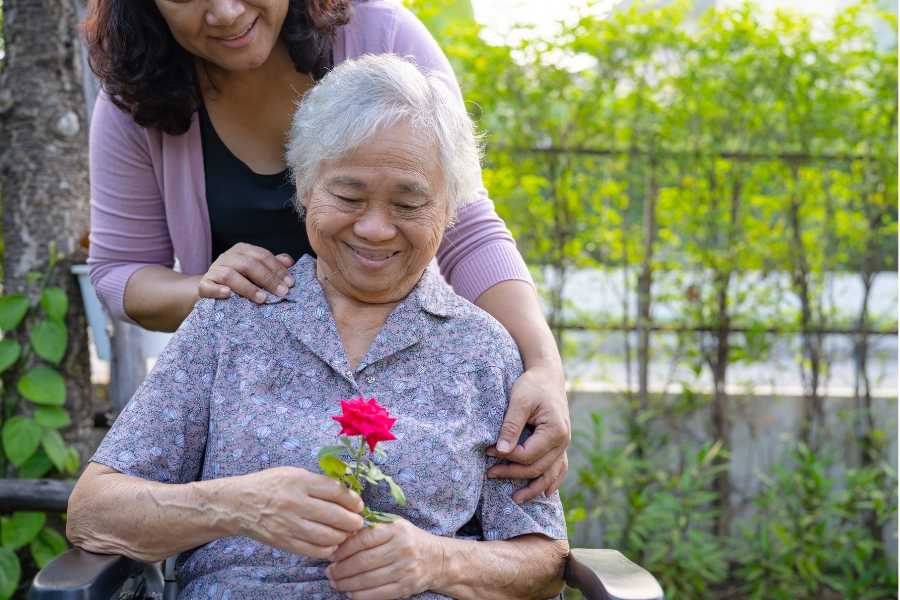
Every worker in a dementia village is trained in dementia care. Photo credit: Canva The one downside to the village concept, of course, is cost. Without adequate funding assistance from governments, living in a dementia village can be prohibitively expensive.
Does it really make a difference for residents, though? Has it been proven that outcomes are better than traditional care models? With dozens of villages now being used around the world, research is ongoing, but the data from the Hogeweyk is promising. People in the comments of Vox’s by Design video shared how such facilities have been life-changing for their loved ones and how traditional care doesn’t always meet the needs of people with dementia.
“My grandmother had dementia and when her caretaker who was my grandfather (her husband) passed unexpectedly we had to scramble to get her into a memory care facility in the US. The first place she was in temporarily was so sad, I could see her spirit drain but after about a year we were able to get her into a “village” and the quality of life difference is nothing short of ASTOUNDING! She could function in a way that was familiar and comfortable to her and not be in a foreign hospital setting. The abrupt change from a home where they are familiar, to a clinical setting must be very disorienting and upsetting to these people. That side of my family had mental health issues and memory loss starts early, so I know it will happen to me to some extent and I only hope I can have people take care of me as well as in this Hogeweyk.”
“I’ve worked in a nursing home through high school and college. While I can’t say it was the worst place for dementia patients, it certainly did not work well for all of them. One patient once tried to wedge herself through the door begging to go outside with me and I even had patients confide in me that they hated being institutionalized, they missed being able to live a normal life, being part of a real community, and being able to come and go as they pleased. This concept is probably the closest thing possible to a normal life a dementia patient could ever have.”
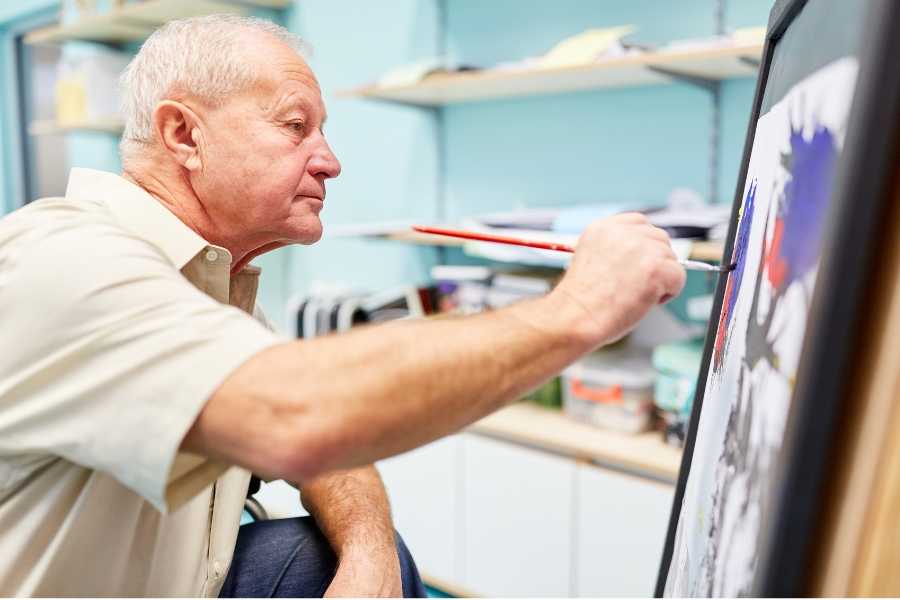
In a dementia village, residents can live somewhat Photo credit: Canva “A relative of mine used to get aggressive, violent and angry when she would encounter a locked door in the institution she was in. She couldn’t understand why there would be a locked room in what she understood to be ‘her home’, this would take a lot of calming down and management, only for her to discover another locked door, and kick off again. I love these village based models as they allow autonomy for residents, and have an individual experience. Just because someone has a brain disease doesn’t mean they aren’t entitled to the very best care. I hope the govt spends far more on these establishments in the future.”
“As he said at the end, people with dementia are still people—even if there is proven to be no benefits to this model over a care home, I would much prefer to have dignity in my final days than live in a clinical trap. Love all the incredible ideas the Netherlands come up with.”

A dementia village is a self-contained neighborhood with shops and places for people to go like a normal neighborhood. Photo credit: Canva Dementia care is something Americans are going to have to look at closely. According to The Alzheimer’s Association, the number of people living with Alzheimer’s is set to nearly double from seven million to 13 million by the year 2050. As more of our elders require full-time care, the more we’ll have to consider prioritizing putting resources into things like dementia villages.
Everyone deserves safety and a good quality of life. The Hogeweyk is a great example of what it looks like to view people with dementia as people first and to care for them accordingly.
This article originally appeared last year. It has been updated.

